Prune, anyone? The return of eighties health foods
Forget chia seeds and avocado – here are the budget-friendly, old-school foods to boost body and brain.

You may not have bought grapefruit juice in a while. The staple of diet plans of the 1970s and 1980s and former breakfast table favourite is now a less-popular product on supermarket shelves. Annual sales have plummeted from about 14.4 million litres in the year to May 2021 to 7.5 million in the year to last month, according to figures from the market analyst Kantar.
True, its tart taste didn’t go down well with younger shoppers, and the fact that it adversely affects the way that statins (cholesterol drugs taken by about eight million people in the UK) work didn’t help its cause. Yet it wasn’t without health benefits.

“Grapefruit is prized for its vitamin C content and contains potassium, the antioxidants beta-carotene and lycopene and fibre, which can help to fill you up,” says Ian Marber, a nutrition therapist.
In a world filled with fashionable health foods – where no meal is complete without an avocado or a sprinkling of chia seeds – some of the old-school favourites seem to be forgotten, or at least viewed with less enthusiasm when debating what to buy. So here are some unfashionable healthy foods that still deserve their place in your shopping basket.
Eat prunes for stronger bones
You may still be haunted by school-day memories of prunes (dried plums) and custard, dished out to keep us all regular (and indeed as well as being rich in fibre, prunes contain a type of sugar called sorbitol, which increases the amount of fluid your gut absorbs), but they are a nutrient-dense superfood. A serving of 4-6 prunes provides about 100 calories and more than 20 vitamins, minerals and plant compounds known to be beneficial to health. It is the bone-friendly vitamin K2 along with phenolic compounds and dietary fibre in prunes that are attracting the most scientific attention.
A 2022 trial at Penn State University showed that women who consumed 100g (about 10 prunes) every day for a year improved bone mineral density in their arms and lower spine, and those who ate 5-10 prunes daily for six months prevented a drop in overall bone mineral density compared with women who ate no prunes.
Frozen veg can be more nutritious than fresh
The trend for organic vegetables delivered to the door with traces of mud from the farmer’s field is a far cry from the packets of frozen peas and mixed veg that were consumed in the 1970s and 1980s. In terms of nutrients, fresh isn’t always better. “Many vegetables lose most of their vitamin C content after being on a supermarket shelf for a few days and then in your fridge at home,” says Alex Ruani, a researcher in nutrition science at University College London. “Frozen vegetables, which are usually frozen within hours of being picked, are often more nutritious than fresh veg that is a few days old.” One review of the nutrient content of fresh, frozen and canned fruit and veg found that both “freezing and canning processes may preserve nutrient value”.
Cottage cheese: great for the gut
Cottage cheese, for so long just another classic diet food of the 1980s, is enjoying new-found popularity thanks to featuring in a multitude of TikTok recipes. Lower in fat than most other cheeses (standard cottage cheese contains 4-6 per cent fat, the low-fat version 1-2 per cent fat), most of its calories come from protein. It also contains B vitamins, which help to convert food into energy, and calcium for strong bones and teeth as well as useful amounts of gut-friendly bacteria.
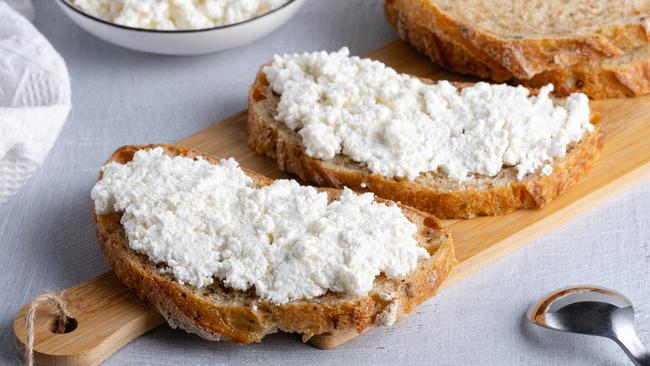
“Some studies have suggested that cottage cheese contains plenty of Lactococcus lactis, plus good amounts of Lactobacillus casei and Lactobacillus kefiranofaci,” Ruani says. “These are the kind of cultures also present in fashionable kefir.” Having two tablespoons of cottage cheese 30-60 minutes before going to bed was shown to boost muscle health and recovery in active women as effectively as a protein shake by researchers at Florida State University.
Humble mustard and cress is a great antioxidant
Remember growing “mustard and cress” on your windowsill as a child? It could be time to reinstate those sprouted seedlings - yellow mustard and garden cress - in your salad as they are packed with vitamin C, vitamin K and some fibre too. “Garden cress has been shown to have some anti-inflammatory, anticarcinogenic and antioxidant properties by researchers in Turkey,” Ruani says. “It is particularly rich in polyphenols.”
Eggs can protect your eyesight
In the 1970s adverts by the Egg Marketing Board encouraged us to “go to work on an egg”. Health scares around the presence of salmonella and too much cholesterol in eggs – followed by a rise of plant-based eating – led to a fall in consumption. Now sales are rising again and we each ate an average of 175 eggs in 2023, six more than we ate in 2004.
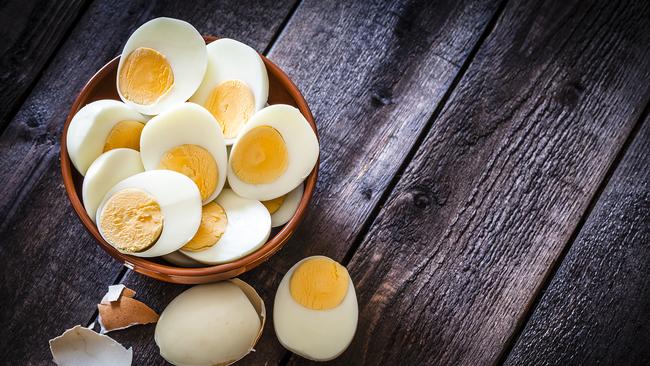
Health chiefs dropped advice to limit egg intake to no more than three a week almost two decades ago as it was confirmed that, although egg yolks do contain cholesterol, it won’t raise blood cholesterol levels. Eggs are low in the saturated fat associated with a raised risk of heart disease.
“Eggs are a good source of protein, which fills you up, and contain amino acids, omega 3 fatty acids, vitamins D and B12,” Marber says. “They are also naturally good sources of choline, which is needed for transmission of nerve signals, and lutein and zeaxanthin that help protect our eyes as we age.”
Marmite – good for the nervous system
Love it or hate it, the yeast extract spread from your childhood toast soldiers has health benefits, despite its high salt content. It’s a good source of B vitamins, thiamin, riboflavin and niacin, which support the nervous system and help the body to release energy from food.
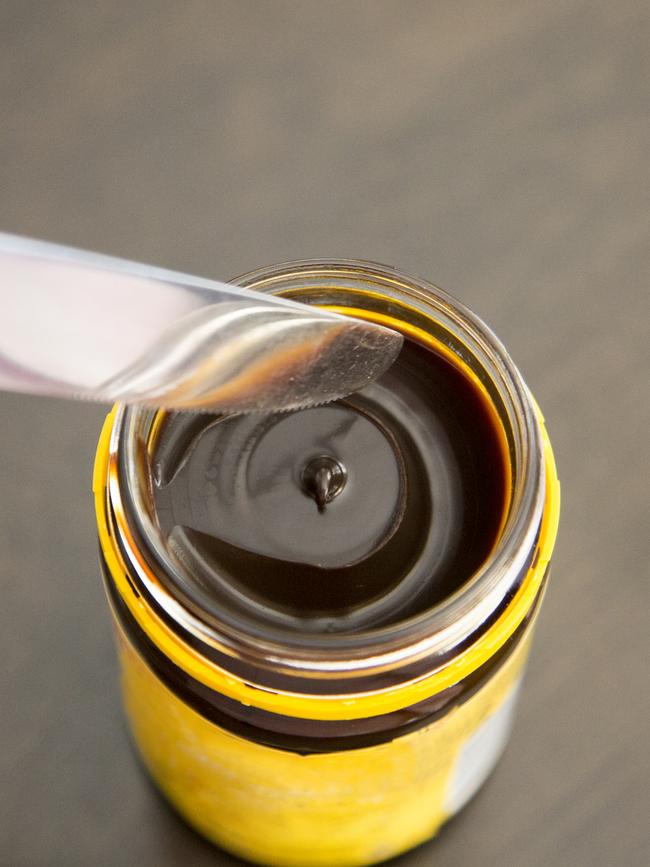
The B vitamins in Marmite were also shown in a study by psychologists at the University of York to increase levels of a brain-calming neurotransmitter. Results of the study published in the Journal of Psychopharmacology suggested that one daily teaspoon of Marmite for a month was enough to reduce the brain’s unhealthy response to stressful visual stimuli. Marmite is also rich in magnesium and may improve sleep quality.
Plain yoghurt can reduce the risk of type 2 diabetes
Yes, there are fancier fermented products on the market. Kefir, a cultured dairy drink, and Skyr, the traditional Icelandic cultured dairy product, for example. However, good, old-fashioned plain natural yoghurt still has many health benefits. Not only is it crammed with “good” bacteria, making it a highly gut-friendly food, but it also contains protein and calcium for healthy bones and muscles.
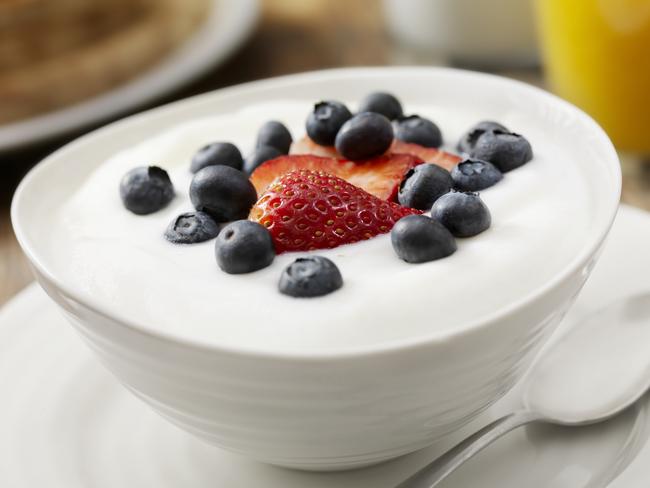
A study by the Medical Research Council’s epidemiology unit at the University of Cambridge found that people who eat plain yoghurt regularly had a 28 per cent lower risk of developing type 2 diabetes than those who never ate it. Researchers who analysed data from 5,000 people reported in Nutrition and Cancer journal that eating 40g of yoghurt every day helped to lower the risk of liver cancer by 5.4 per cent. “Plain yoghurt has lots of health benefits and is often cheaper than trendy alternatives,” Marber says.
Eat rye crispbread for a healthy microbiome
They may have been a cardboard-tasting dieter’s staple in the 1980s, but fast forward 40 years and crispbreads are being billed as a gut-friendly food that really can help to blast away the pounds. High in the fibre that is essential for a healthy microbiome, they are also filling enough to stave off hunger pangs - both of which help with weight loss. “The fibre in rye helps to nourish the gut microbiome and increase satiety,” says Eli Brecher, a nutritionist. “It is also a good source of nutrients such as magnesium, potassium and antioxidants.” For a trial at the Chalmers University of Technology in Sweden, researchers asked half of their 242 overweight participants to eat a bowl of rye-based breakfast cereals, four to six slices of rye crisp bread and two to two and a half slices of soft rye bread every day; the rest ate refined wheat versions with the same total calorie intakes. After 12 weeks, results in Clinical Nutrition showed that the rye group had lost 1.08 kg more body weight and 0.54 per cent more total body fat than the wheat group, despite no other changes to their diets.
Red grapes boost immunity
For a while grapes were considered such a healthy food that no sickbed bedside table was complete without them. Now, if you picture a small, dark, healthy fruit, it’s probably a fashionable but pricier blueberry. Both are rich in polyphenols (antioxidant plant compounds such as anthocyanins, the blue pigment shown to benefit brain health) and resveratrol, which has been shown to have anti-inflammatory and anti-ageing effects. The peel and pips of red grapes are also rich in other antioxidants, including catechins and epicatechins, which are also found in tea and are known to reduce oxidative stress in the body.
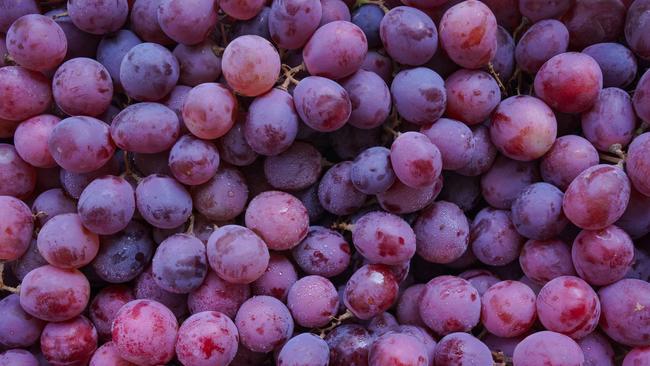
“A very detailed 2023 Nature study involving healthy men and women found that eating three 80g daily servings of grapes [that’s about 14 grapes per serving] for two weeks increased levels of beneficial bacteria such as Streptococcus thermophilus and decreased potentially harmful Holdemania spp., promoting a healthier gut microbiome,” Ruani says. “These changes are often associated with improved digestion, immune support and reduced inflammation.” The same study also showed a substantial increase of molecules related to DNA repair, suggesting bioactive compounds in grapes might enhance mechanisms linked to a healthier, longer life.
An apple a day keeps cholesterol at bay
Often overlooked in favour of more flamboyant tropical fruits, an apple a day may still keep the doctor away. Many of the fruit’s health benefits are linked to pectin, the soluble dietary fibre that is found predominantly in the skin and core. Pectin has been shown to improve blood cholesterol levels, a risk factor for heart disease.
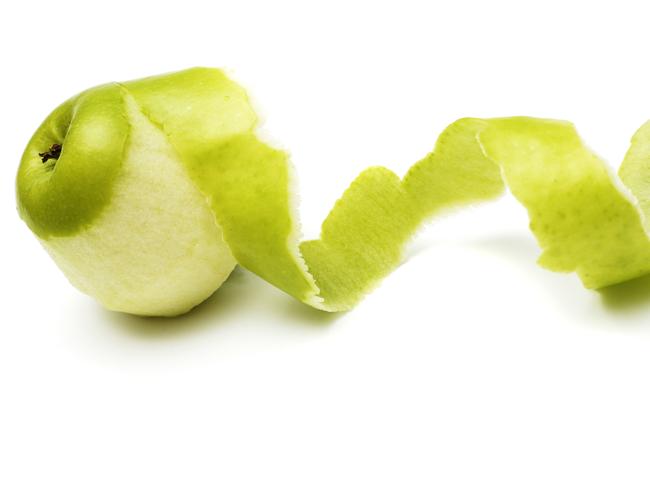
A 2020 paper published in the American Journal of Clinical Nutrition showed that healthy midlifers who ate two apples a day for eight weeks had their cholesterol levels reduced; drinking apple juice, which contains none of the fibre, did not have the same effect. “Apples are a nutrient-dense fruit, containing 10 per cent of your daily vitamin C intake, alongside copper, vitamin K and vitamin E,” Brecher says. “An apple a day is a great habit for a healthy heart as not only does the pectin help to lower cholesterol but the polyphenols in apples are linked to lower blood pressure and a reduced risk of a stroke.”
Your mum was right – bedtime milk helps you sleep
If your mother told you to drink a glass of warm milk before bed to relax you so that you were ready to sleep, she was on to something. A review of 14 studies published in the Journal of Environmental Research and Public Health concluded that a balanced diet that includes milk before bed “is effective in improving sleep quality”.
Milk’s sleep-enhancing properties have been attributed to the tryptophan it contains, which is an amino acid that can boost sleep quality and mood. Scientists reporting in the Journal of Agricultural and Food Chemistry suggested the sedative effect of warm cow’s milk is also down to specific peptides, such as casein tryptic hydrolysate, which relieves stress and enhances sleep.
Mineral-rich malt extract might help IBS symptoms
A spoonful of sticky, sweet malt barley extract was a daily ritual for many children in the 1970s and 1980s because it was believed to support healthy growth. “Malt extract is mostly starch but does have small amounts of amino acids, B vitamins, magnesium and potassium,” Ruani says. “It also has a high concentration of enzymes that digest carbohydrates [specifically amylase and glucanase enzymes] and their action is thought to help improve IBS symptoms.”
A pilot study conducted through the NHS is being carried out to check if malt extract can help alleviate irritable bowel syndrome symptoms, with participants taking 15ml of light enzyme-rich malt extract at breakfast and 15ml with the last meal of the day. Because it is very sweet it’s best used in place of sugar and syrups as a natural sweetener in baking, Ruani adds, although it can be stirred into hot milk for a bedtime drink.
The Times

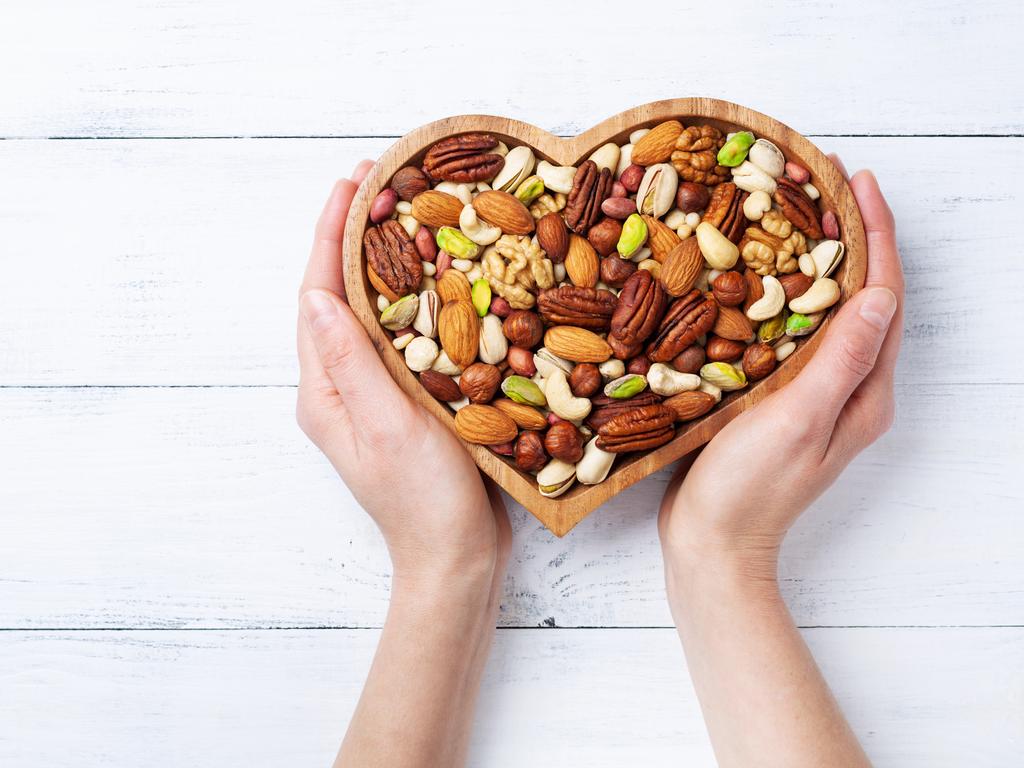

To join the conversation, please log in. Don't have an account? Register
Join the conversation, you are commenting as Logout